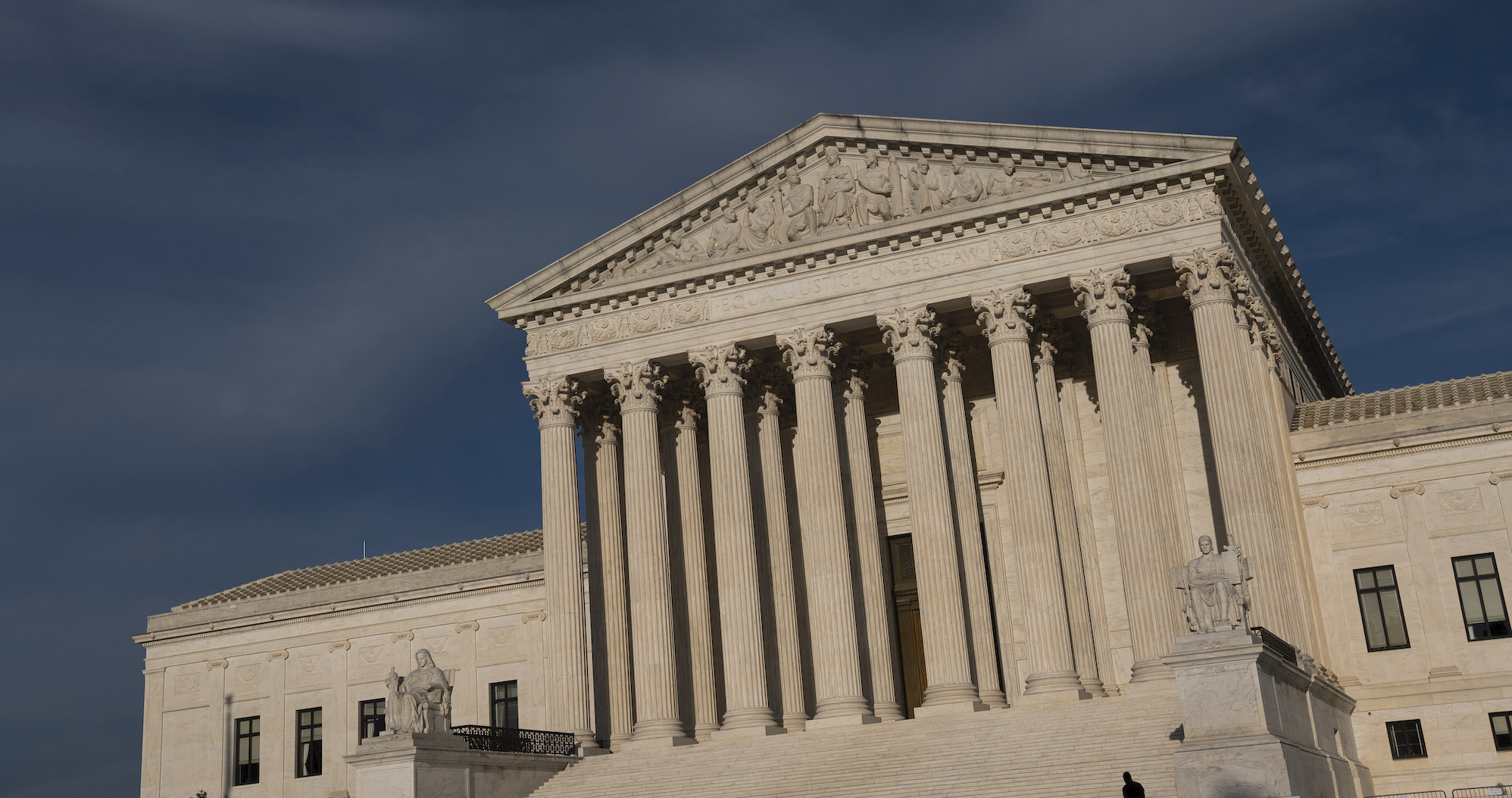The Supreme Court heard arguments yesterday on two of five social media cases that will come before it this term. The disputes, which will be presented over the course of three hearings, all have to do with how the First Amendment applies on social media platforms, now well established as a primary conduit for public speech. They betray anxieties over how the ability to remove certain content could be leveraged to control public opinion and suppress dissent.
Social media and journalism are, perhaps inextricably, intertwined, particularly when the First Amendment is concerned. We have rounded up and summarized the cases below.
“State action” on social media
In October, the court heard the first two social media cases of the term, both about whether public officials should be able to block constituents online. One case was brought by a man in Port Huron, Michigan, who was unhappy with the information about the pandemic that his local city manager had posted on Facebook. He left responses from multiple accounts. The city manager deleted the comments and blocked the man, who then sued.
The second case involved two parents in Southern California who used social media to express their displeasure with members of their school district’s board of trustees; at one point, according to court documents, one of them left the same comment on 42 of one official’s Facebook posts and 226 of her tweets. The officials blocked them. They, too, sued.
The court’s decision in the case will center on whether the officials used the accounts in their capacity as representatives of the government (for “state action”) or purely for personal reasons.
The details echo those of a previous case brought by the Knight First Amendment Institute at Columbia University against Donald Trump after the then-president blocked several constituents on Twitter. The US Court of Appeals for the Second Circuit ruled against Trump, finding that he had clearly used his Twitter account extensively for official business, rendering the profile itself a kind of public forum from which constituents cannot be excluded based on their political views. The Supreme Court vacated the ruling when Trump was voted out of office. Now it has a chance to determine whether government figures can moderate online dissent. Arguments in the case were heard on October 31, but the court has not yet released a ruling.
The editorial powers of social media
The second set of cases arose from public figures who have alleged that social media companies are biased against conservative views. In 2021, months after Facebook removed Donald Trump from the platform over COVID-19 misinformation, both Texas and Florida passed bills designed to curb the companies’ content moderation policies, claiming that they were being used to arbitrate protected political speech.
The Florida law outlined fines that would be imposed on social media companies if they knowingly removed a political candidate from their platforms, even if the candidate in question had violated the site’s terms of use. The Texas law banned what it calls “censorship” based on political views, using the word to describe basic content moderation practices, including removing or downranking posts and labeling them with disclaimers.
Two industry groups that represent the interests of various social media companies filed suit, arguing that the First Amendment protects the right of their clients as private entities to set and enforce their own terms of use. A judge in the Court of Appeals for the Fifth Circuit rejected this argument, writing that the companies “attempt to extract a freewheeling censorship right from the Constitution’s free speech guarantee.” The Supreme Court will determine whether to limit the editorial discretion of social media companies on First Amendment grounds.
Political sway
The last case also concerns the use of content moderation as a mode of censorship. The attorneys general of Louisiana and Missouri brought the case, arguing that various officials from the Biden administration violated the First Amendment when they compelled executives at various social media companies to remove misleading content related to COVID-19 and the 2020 election from their platforms. In the past, government officials have communicated with social media companies over the removal of certain kinds of content: material relating to child sexual abuse or terrorism, or stemming from foreign operatives. The attorneys general argue that the administration leveraged this access to muzzle dissenting voices.
More than in any of the other cases, the allegations against the Biden administration reflect a belief that social media has become a tool for the political elite—particularly the progressive political elite.
But the cases are also part of a greater reckoning with the meaning of free speech in the digital era. Social media has democratized the ability to publish content while changing the meaning of editorialization.
“We need a First Amendment that resolves conflicts among competing speech claims in the digital public sphere by privileging the speech that is most necessary for democracy,” Jameel Jaffer, executive director of the Knight First Amendment Institute, wrote in an October essay in the New York Times. “This will be a formidable challenge for the court, but it could hardly be more important.”
Yona TR Golding is a CJR fellow.

